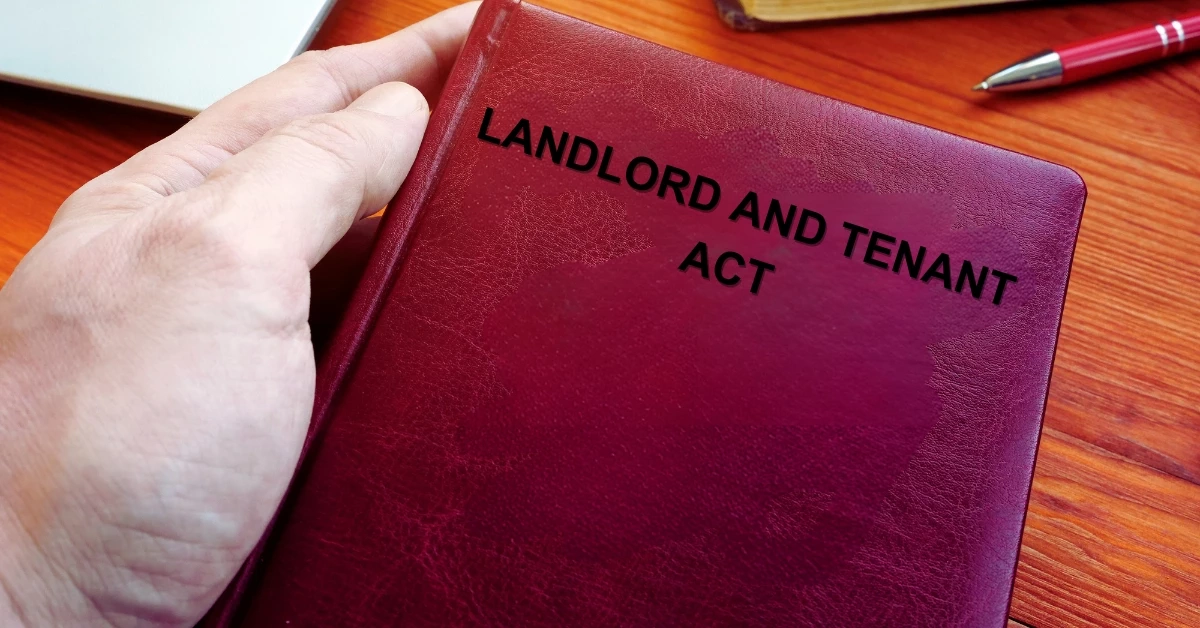What Do Landlords Legally Have to Provide in Alabama?
Landlords in Alabama are required to provide habitable housing, as outlined by state law, which includes basic necessities such as functioning plumbing, heating, and electricity. Alabama law mandates that landlords provide safe and habitable living conditions for their tenants.
This includes providing a structurally sound building with adequate ventilation, plumbing, heating, and electricity. Essentially, landlords are required to ensure that properties are safe and livable before renting them out. Other legal obligations include complying with housing codes and making any necessary repairs in a timely manner.
This article, concise yet informative, delves into these pivotal questions, enlightening you about your entitlements in Alabama. Let’s get to the heart of the matter, shall we?
Overview Of Alabama State Law On Landlord-Tenant Relationships
Alabama’s state law outlines the rights and responsibilities of both landlords and tenants.
If you’re a landlord in Alabama, it’s essential to understand these laws so that you can provide a safe and habitable environment for your tenants.
Equally, as a tenant in Alabama, knowing the law can protect your rights as a tenant and help you avoid being taken advantage of by a landlord.
Introduction To The Importance Of Knowing Landlord-Tenant Laws In Alabama
As a landlord in Alabama, understanding the laws governing landlord-tenant relationships is crucial.
Failing to do so can lead to legal disputes, reputational damage, and financial losses. As a tenant, your understanding of the laws that protect you as a renter is just as important.
These laws safeguard your rights, protect you from discrimination, and ensure you live in healthy and safe housing conditions.
Here are some of the key laws that landlords and tenants in Alabama should know:
Alabama Uniform Residential Landlord and tenant act (urltra)
Urlta outlines the rights and duties of both landlords and tenants in Alabama.

It covers issues such as security deposits, rent payments, evictions, and the maintenance of rental properties.
Alabama fair housing act
This act makes it illegal to discriminate against tenants based on their race, sex, religion, national origin, or disability status.
Building codes
Landlords are required to ensure rental properties meet all state and local building codes.
These codes include electrical, plumbing, heating, and air conditioning systems, among others.
Understanding The Scope And Applicability Of These Laws
Alabama’s landlord-tenant laws apply to all rental properties in the state, regardless of the number of units or rental amount.
Both the landlord and the tenant have legal rights and responsibilities under these laws, and they protect both parties.
Additionally, it’s essential to understand that these laws can’t be waived or modified by the rental agreement between the landlord and tenant.
The Procedures Of Eviction And Disputes Settlement Between Landlords And Tenants In Alabama
Eviction is a legal process, and landlords must follow specific procedures outlined by state law.
As a landlord, you must have a valid reason for eviction, such as non-payment of rent, lease violations, or illegal activities.
You must also provide a written notice of eviction to the tenant and file a lawsuit in court if the tenant refuses to leave the property.
The court can grant an order of possession to the landlord, enabling them to evict the tenant forcibly.
In case of disputes between landlords and tenants, the first course of action should be to try to resolve them informally.
However, if that is not possible, either party can file a lawsuit in court.
Alabama small claims court hears cases with a value of up to $6,000, and landlords can represent themselves in court without hiring an attorney.
Importance Of Having A Rental Agreement
Having a written rental agreement protects both landlord’s and tenant’s rights and helps prevent disputes.
A rental agreement outlines the lease terms, including rent payment, security deposit, pet policy, and the duration of the lease.
Additionally, it should detail the tenants’ expectations, including maintenance and upkeep of the property and prohibited activities.
As a landlord, you should provide a clear, concise rental agreement and ensure the tenant understands its terms before signing it.
Landlords and tenants should be aware of Alabama’s state law governing landlord-tenant relationships to avoid any disputes.
Understanding these laws protects both parties and provides a framework for legal and fair landlord-tenant interactions.
Basic Rights And Responsibilities Of Alabama Landlords
Common Obligations And Responsibilities Of Alabama Landlords
As a landlord in Alabama, you have both legal rights and responsibilities. Some of the common obligations that you should follow to ensure your tenants’ rights are:
- Collecting security deposits that must be held in separate accounts.
- Providing safe, habitable, and sanitary conditions for your tenants.
- Informing tenants in writing about any known lead-based paint hazards within the rental unit.
- Giving tenants reasonable notice before entering the property.
- Refunding a tenant’s security deposit within 60 days of lease termination, excluding any deductions made.
Explanation Of Specific Requirements
The Alabama uniform residential landlord and tenant act set out the specific requirements that landlords must follow. These include:
- Providing tenants with a written lease agreement.
- Disclosing property ownership details in the lease agreement.
- Refraining from retaliation against tenants who file a complaint about needed repairs.
- Keeping rental units habitable and safe.
- Providing running water, heat, and reasonable amounts of hot water and electricity.
Highlighting The Necessary Conditions And Repairs
As a landlord, you have a legal obligation to maintain your rental properties in good condition.
Some of the necessary conditions and repairs that you must provide in Alabama include:
- Making sure all appliances and electrical systems are in proper working order.
- Providing operable smoke detectors in each rental unit.
- Ensuring the rental unit is free of pests when a tenant moves in.
- Maintaining the heating and cooling systems, and ensuring they are in good condition.
- Repairing any leaks or damage that could cause a safety hazard to the tenant.
By providing your tenants with safe and habitable living conditions, you can build a positive relationship and garner good reviews from satisfied renters.
Remember to keep the Alabama state laws in mind when carrying out your duties as a landlord.
What Do Landlords Legally Have To Provide In Alabama?

Essential Needs And Requirements That Alabama Landlords Must Provide To Their Tenants:
When it comes to being a landlord in Alabama, you have certain legal responsibilities you must uphold.
Your tenants have a right to a safe and habitable living space.
With that in mind, here is a detailed discussion of essential needs and requirements that Alabama landlords must provide to their tenants:
- A well-maintained property that is free of health hazards.
- A functioning plumbing system and hot/cold water.
- A working heating and cooling system, depending on the season.
- Door and window locks for safety and security.
- Smoke detectors and carbon monoxide detectors.
Explanation Of Laws Pertaining To Health And Safety Requirements In Rental Units:
As a landlord in Alabama, you are required to comply with specific laws and regulations that pertain to health and safety requirements in rental units.
Here are a few key points to keep in mind:
- The Alabama uniform residential landlord and tenant act (urlta) specifies that rental properties must be maintained in a safe and decent condition.
- Landlords must provide their tenants with a “fit and habitable” property, meaning it must be free of health and safety hazards.
- In addition to providing safe living space, landlords must take reasonable steps to address any hazards or issues that arise during the tenancy.
Tenant Consent And Access, Lease Renewals, And Other Relevant Issues
As an Alabama landlord, you are required to comply with specific laws and regulations that pertain to tenant consent and access, lease renewals, and other relevant issues.
Here are some key points to keep in mind:
- Landlords must provide tenants with reasonable notice before entering their rental units. Typically, 24 hours is a reasonable timeframe.
- Before making repairs or upgrades to the property, landlords must obtain the tenant’s consent.
- If a tenant wishes to renew their lease, landlords must provide them with reasonable notice of any changes to the lease agreement.
- Landlords must comply with fair housing laws that prohibit discrimination based on race, religion, gender, disability, family status, and other protected categories.
Remember, as an Alabama landlord, it is your legal duty to provide your tenants with a safe and comfortable living space while adhering to specific laws and regulations.
FAQs
What Is The Minimum Requirement For A Rental Property In Alabama?
In Alabama, landlords must provide a property that adheres to local housing codes and offers basic amenities such as heating and plumbing.
Are Landlords In Alabama Required To Provide Air Conditioning?
No, landlords in Alabama are not legally required to provide air conditioning units to their tenants, but some properties may come with them.
Is A Landlord Required To Make Repairs?
Yes, landlords in Alabama have a legal obligation to make necessary repairs to ensure the property is habitable and safe for tenants.
Can A Landlord Enter The Property Without The Tenant’S Permission?
Generally, landlords in Alabama must give 24-hour notice before entering the property for maintenance, repairs, or inspections.
Conclusion
As a prospective tenant in Alabama, remember that landlords legally have specific responsibilities towards you.
They must provide a safe and habitable living environment, maintain essential services, and address any repairs promptly.
Additionally, they must respect your privacy and adhere to fair housing laws.
By knowing your rights and holding landlords accountable, you can ensure a comfortable and secure rental experience.
Reference
https://montgomery.alacourt.gov/media/1026/landlordtenantact.pdf